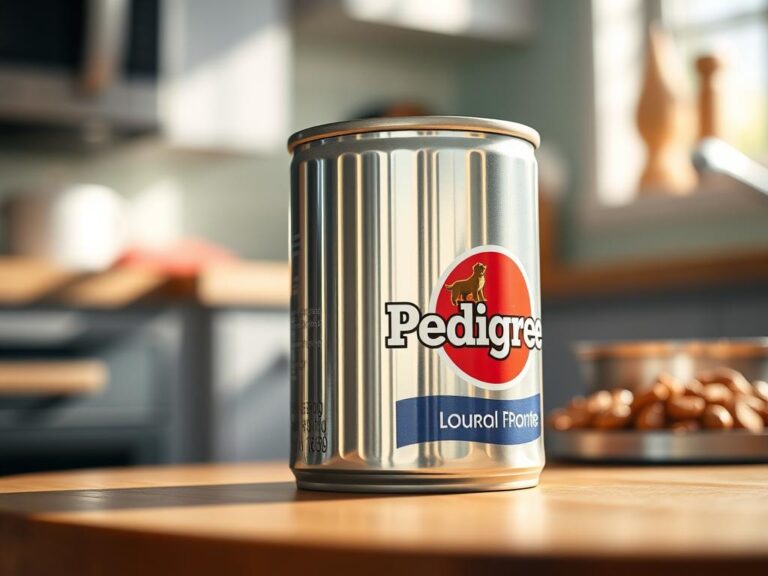Why Does My Dog Fart So Much?
Dog flatulence is a common issue many dog owners face, often leaving them wondering about the causes and solutions.
Excessive dog farting can be embarrassing and uncomfortable for both dogs and their owners. Understanding the underlying reasons is crucial to addressing the problem effectively.
It’s not just a matter of being unpleasant; excessive gas can be a sign of an underlying health issue. By exploring the causes of dog flatulence, owners can take the first step towards finding a solution.
This article aims to provide insights into the reasons behind excessive dog farting and offer practical advice on how to manage it.
Understanding Normal vs. Excessive Dog Flatulence
It’s essential to distinguish between normal and excessive dog flatulence to ensure your pet’s health and comfort. Dog owners should be aware of the factors that contribute to their dog’s gas to identify potential health issues early.
What Constitutes Normal Canine Gas
Normal canine gas is typically a natural part of the digestive process. Dogs, like humans, swallow air, and their digestive system produces gas as food is broken down. A certain level of flatulence is normal, but the frequency and odor can vary greatly depending on diet, breed, and individual dog health.
Signs Your Dog’s Farting Is Excessive
Excessive farting in dogs can be a sign of an underlying issue. Factors to consider include:
- Frequency: How often your dog passes gas.
- Odor: The smell of the gas, which can indicate the type of food being digested or an underlying health issue.
- Associated symptoms: Bloating, discomfort, or changes in appetite or stool quality.
Frequency, Odor, and Associated Symptoms
Monitoring these aspects can help you understand if your dog’s flatulence is excessive. For instance, a strong, persistent odor or frequent gas accompanied by bloating or discomfort may indicate a dietary issue or a health problem that needs veterinary attention.
Why Does My Dog Fart So Much? Common Causes
The issue of dog flatulence is multifaceted, involving diet, breed characteristics, and age-related changes. To address the problem effectively, it’s crucial to understand these factors and how they contribute to your dog’s gassiness.
Dietary Factors That Increase Gas
A dog’s diet plays a significant role in their digestive health. Certain ingredients in dog food can be difficult for dogs to digest, leading to increased gas production. For instance, foods high in fiber or containing certain protein sources can cause more flatulence. Probiotics can help alleviate this issue by promoting a healthy gut flora.
Feeding practices also impact gas production. For example, dogs that eat quickly or gobble their food may swallow more air, contributing to flatulence. Adjusting feeding habits and exploring different food options can help mitigate these issues.
Breed Predispositions to Flatulence
Some dog breeds are more prone to flatulence due to their anatomy or genetic predispositions.
Brachycephalic Breeds and Digestive Sensitivities
Brachycephalic breeds, characterized by their short, flat faces, often experience breathing difficulties and may also have digestive sensitivities. These sensitivities can contribute to increased gas. Their unique anatomy can lead to swallowing more air, further exacerbating the issue.
Age-Related Factors
A dog’s age can also influence their propensity for flatulence. Puppies, for instance, may experience gas due to their developing digestive systems, while older dogs might see changes in their digestive health as part of the aging process. Monitoring your dog’s health and adjusting their diet or care accordingly can help manage age-related flatulence.
Food-Related Triggers for Dog Flatulence
Dietary factors are a primary contributor to dog flatulence, and identifying the right foods can help alleviate the issue. The food your dog eats can significantly impact their digestive health and, consequently, their flatulence levels.
Problem Ingredients in Commercial Dog Foods
Many commercial dog foods contain ingredients that can be difficult for dogs to digest, leading to increased gas production. These ingredients often include fillers, additives, and low-quality proteins that can be hard on a dog’s digestive system.
Fillers, Additives, and Low-Quality Proteins
Fillers such as corn, wheat, and soy are commonly used in dog foods but can be challenging for dogs to digest. Additives like artificial preservatives and colors can also contribute to digestive issues. Furthermore, low-quality proteins that are not easily absorbed by the body can lead to increased flatulence.
Human Foods That Cause Gas in Dogs
Human foods can be a significant contributor to dog flatulence. Foods such as beans, cabbage, and broccoli are known to cause gas in dogs, just as they do in humans. Additionally, foods high in fat can slow down digestion, leading to increased gas production.
Food Allergies and Intolerances
Food allergies and intolerances are another critical factor in dog flatulence. Dogs can develop allergies or intolerances to certain ingredients in their food, leading to digestive issues, including gas. Common allergens include beef, dairy, and soy. Identifying and eliminating these allergens from your dog’s diet can help reduce flatulence.
Medical Conditions That Cause Excessive Gas
While occasional flatulence is normal, persistent gassiness in dogs may indicate a serious health issue. Various medical conditions can contribute to excessive gas, making it essential to understand these potential causes to address your dog’s digestive health effectively.
Digestive Disorders
Digestive disorders are a common cause of excessive gas in dogs. These conditions can disrupt the normal digestive process, leading to increased flatulence.
Inflammatory Bowel Disease and Colitis
Conditions like inflammatory bowel disease (IBD) and colitis cause inflammation in the digestive tract, which can result in gas, diarrhea, and other symptoms. Proper diagnosis by a veterinarian is crucial for managing these conditions.
Intestinal Parasites
Intestinal parasites, such as worms, can also contribute to excessive gas. These parasites can interfere with your dog’s digestive process, leading to various gastrointestinal issues, including flatulence.
Regular deworming and maintaining good hygiene practices are essential in preventing intestinal parasite infestations.
Other Health Issues That Increase Flatulence
Other health issues, including gastrointestinal foreign bodies, pancreatitis, and certain metabolic disorders, can also lead to excessive gas. If your dog’s flatulence is accompanied by other symptoms like vomiting, diarrhea, or lethargy, it’s vital to consult a veterinarian to rule out these serious conditions.
A proper diagnosis is key to addressing the root cause of your dog’s excessive gas. Your veterinarian may perform various tests, including blood work, stool exams, and imaging studies, to determine the underlying cause.
Lifestyle and Behavioral Factors
The way your dog lives and behaves plays a crucial role in their digestive comfort and gas production. Several lifestyle and behavioral factors can influence a dog’s flatulence, making it essential for dog owners to be aware of these aspects to manage their pet’s digestive health effectively.
Eating Habits That Contribute to Gas
A dog’s eating habits can significantly affect their digestion and gas production. One common issue is speed eating, which can lead to swallowing air.
Speed Eating and Air Swallowing
When dogs eat too quickly, they tend to swallow more air, which can contribute to gas in the digestive tract. Using slow-feeder bowls can help mitigate this issue by slowing down the eating process.
- Slow-feeder bowls can reduce air swallowing.
- Dividing meals into smaller portions can also help.
- Some dogs benefit from eating in a quiet, stress-free environment.
Exercise and Its Effect on Digestion
Regular exercise is vital for maintaining a healthy digestive system in dogs. Physical activity can help stimulate bowel movements and improve overall gut health.
Daily walks and playtime not only benefit a dog’s physical health but can also enhance their digestive well-being. However, it’s crucial to strike a balance, as excessive exercise can sometimes cause digestive upset.
Stress and Anxiety-Related Digestive Issues
Just like humans, dogs can experience stress and anxiety, which can impact their digestive health. Stress can lead to or exacerbate digestive issues, including gas and discomfort.
Identifying and addressing the sources of stress is crucial. Creating a calm environment and using stress-reduction techniques such as pheromone diffusers or calming treats can help alleviate anxiety-related digestive problems.
Effective Solutions to Reduce Your Dog’s Flatulence
Reducing dog flatulence involves understanding its causes and implementing effective solutions, from dietary changes to appropriate supplements. The first step in minimizing your dog’s farting is to examine their diet and consider adjustments that can make a significant difference.
Dietary Changes and Specialized Foods
Switching to a high-quality, easily digestible dog food can significantly reduce flatulence. Foods with fewer, more natural ingredients tend to be less gas-inducing. Consider a limited ingredient diet or a novel protein diet if your dog has food sensitivities.
Some dogs benefit from foods specifically formulated to reduce gas. These foods often contain easily digestible carbohydrates and may include added fiber to help manage gas production in the digestive system.
Supplements That Aid Digestion
Certain supplements can aid digestion and reduce gas. Probiotics, for instance, introduce beneficial bacteria into your dog’s digestive system, promoting a healthy gut microbiome.
Probiotics, Digestive Enzymes, and Activated Charcoal
Probiotics help maintain a balanced gut, reducing gas and improving digestion. Digestive enzymes can assist in breaking down food components that might be causing gas. Meanwhile, activated charcoal can absorb gas in the digestive tract, though its effectiveness can vary.
| Supplement | Function | Benefits |
|---|---|---|
| Probiotics | Introduces beneficial bacteria | Reduces gas, improves digestion |
| Digestive Enzymes | Assists in food breakdown | Reduces gas, improves nutrient absorption |
| Activated Charcoal | Absorbs gas | Reduces flatulence |
Feeding Practices That Minimize Gas
Changing how you feed your dog can also help. Feeding smaller, more frequent meals can reduce gulping air and ease digestion. Using a slow-feeder bowl can also minimize swallowed air.
Home Remedies Worth Trying
Some home remedies, like adding a small amount of canned pumpkin or plain yogurt to their meals, can help. However, it’s crucial to introduce any new foods gradually to prevent digestive upset.
When to Consult Your Veterinarian
If your dog’s flatulence persists or is accompanied by other symptoms like diarrhea, vomiting, or loss of appetite, it’s essential to consult with your veterinarian. They can help identify underlying conditions that may need medical attention.
Conclusion: Managing Your Dog’s Digestive Health
Managing your dog’s digestive health is crucial to reducing flatulence and improving their overall well-being. By understanding the causes of excessive gas, you can take the first step towards finding effective solutions.
Dietary changes, such as switching to specialized foods or avoiding certain ingredients, can significantly reduce your dog’s flatulence. Additionally, adopting healthy feeding practices and incorporating supplements that aid digestion can also help.
By implementing these strategies, you can improve your dog’s comfort and overall health. Regular check-ups with your veterinarian are also essential to rule out underlying medical conditions that may be contributing to your dog’s flatulence. Effective managing dog digestive health requires patience, observation, and a willingness to make changes as needed.





